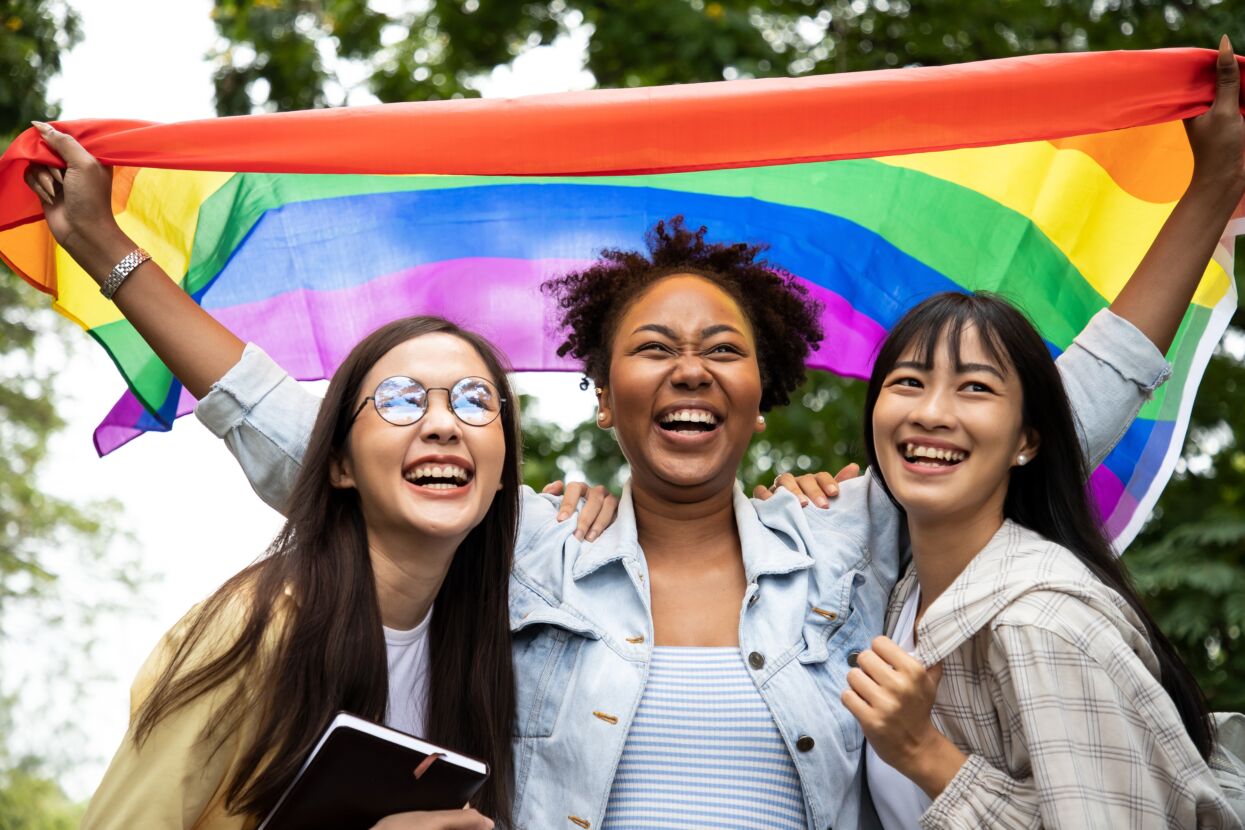The new word in 2021 might be “vaccine,” “vax,” or even “perseverance,” but it’s definitely not viral.
Last year, I wrote “Watch Your Language: How COVID-19 is Changing Communication.” 2020 brought us many new terms. In fact, “COVID-19” made it into Merriam-Webster’s dictionary more quickly than any other word, in a record 34 days. In a year that also brought us the new word “murder hornets,” 2020 showed us just how much a pandemic could reshape the world… and language.
“Language is a measure of culture, but also, in many ways, language can be a measure of time. The words we use — if they are new or relatively new — are the words we need to express and explain our world.”
Merriam-Webster, We Added New Words to the Dictionary for January 2021
In 2021, communication continued to change. Below are new words to use (and others to avoid) as we move into 2022.
The New Word Not to Use: Terms to Retire in 2022
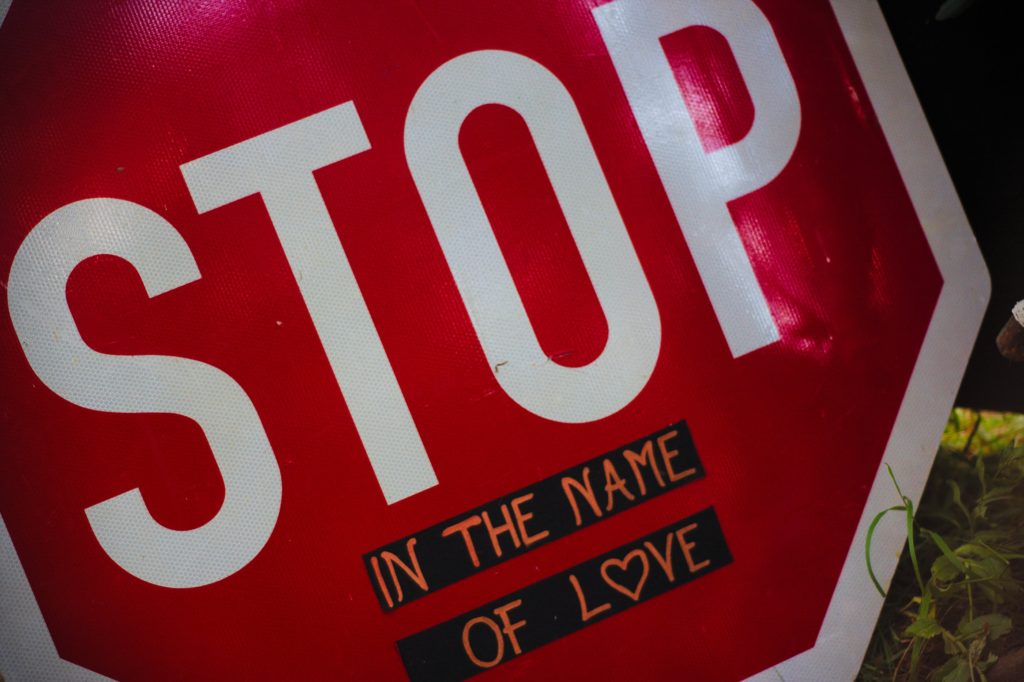
By year two of the pandemic, there were just some words and phrases that lost their sparkle. Below are some examples:
Let’s Not Go Viral, and Excitement that Is Neither Infectious nor Catching
Using the word “viral” has become a no-no in 2021.
“Try to avoid using the adjective ‘viral’ to describe anything unrelated to COVID-19 right now,” advises Lila Tublin of Blog Candid. “It could make your nonprofit [or business] appear oblivious or insensitive to the current situation.”
Almost since the advent of the internet, the phrase “gone viral” has connoted something that has become wildly popular online. But unfortunately, it’s become a bit tired.
“I’ve stopped myself with that expression,” says Peter Sokolowski, editor at Merriam-Webster, in an MIT Technology Review article. In fact, from looking at large databases of news articles, the figurative use of “viral” has gone way down, while the literal use of “virus” has increased.
The term comes from “viral marketing,” according to the article. In the olden days before social media, it was a technique advertising agencies used to manufacture word of mouth. Now, it implies anything that’s share-worthy and a must-watch.
Since March 2020, I’ve personally stopped using “viral,” “infectious,” and even “catching” in all my personal and professional communications. Instead, I’ll write, “Her excitement was inspiring,” or, “The project became a hit.”
Here are some ideas from the English Stack Exchange to help freshen up your communication for 2022:
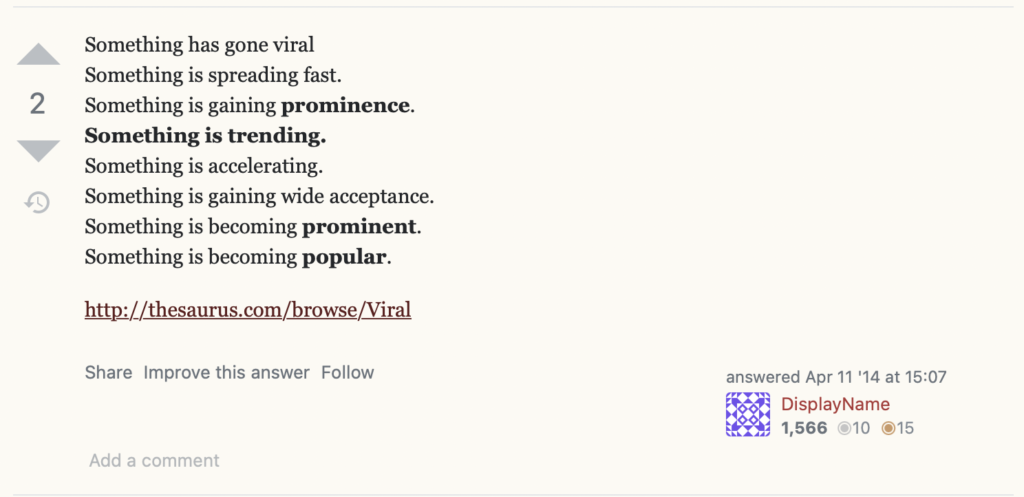
The New Word Gone Stale: Unprecedented Is Not Unprecedented
“Unprecedented,” at this point, should be self-explanatory as a weak word. Not only is it overdone, but it’s also inaccurate. Some estimate that the 1918 pandemic had a worldwide death toll of 100 million. Thankfully, as of writing this article, the COVID-19 pandemic worldwide death toll is only 5.32 million in comparison. Sooooo, let’s just leave the whole “unprecedented” thing behind, okay?
Nix “We’ll Get Through It” and “We’re All in It Together”
While these phrases seem like they should inspire, they have actually expired. According to Jason Williams of the Cincinnati Enquirer, there are a few problems with these phrases. First of all, who is the “we” here? As Williams writes, “The point is ‘we’ are not all on the same team in this pandemic. Everyone is dealing with it in their own way.”
As for “We’ll all get through it,” as Williams points out, “unfortunately, some people won’t get through it.”
Saying “we’ll all get through it” to someone who’s lost a loved one, is dealing with depression, or is experiencing a job loss can be hurtful. Best to retire this saying altogether.
The New Word in 2021: Vaccine & Vax
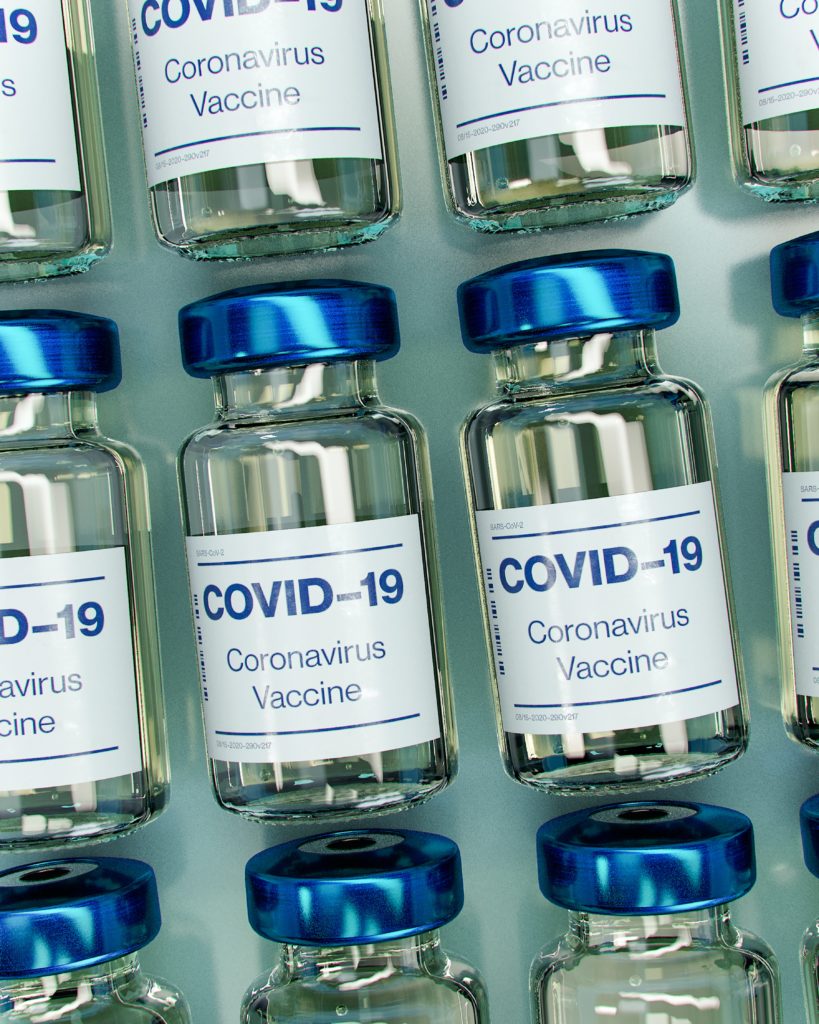
Each year, dictionaries award the most-looked-up words with the distinction of “word of the year.”
In 2021, Merriam-Webster nominated “vaccine” to the word of the year. The term became a vehicle for hope and also ideological conflict. According to the dictionary, “The biggest science story of our time quickly became the biggest debate in our country, and the word at the center of both stories is vaccine.”
Merriam-Webster actually had to revise and expand the definition of “vaccine” in 2021 to take into account the new mRNA technology. They also say that compared to 2019, last year, lookups for the word increased by 1,048%.
Interestingly, the word vaccine comes from the Latin word for “cow,” vacca. The term dates back to the 1880s, when cowpox inoculations were used to prevent smallpox.
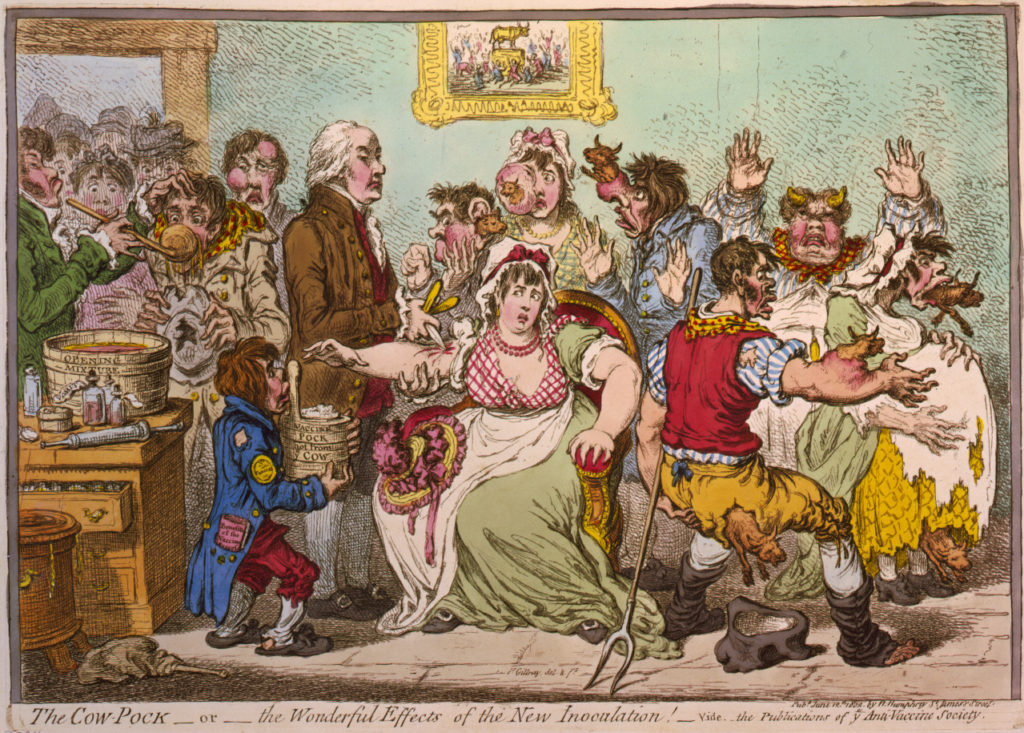
“The word vaccine was about much more than medicine in 2021. For many, the word symbolized a possible return to the lives we led before the pandemic. But it was also at the center of debates about personal choice, political affiliation, professional regulations, school safety, healthcare inequality, and so much more.
“Few words can express so much about one moment in time.”
Merriam-Webster, We Added New Words to the Dictionary for January 2021
Vax Is Where It’s At
Similarly, the Oxford Dictionary named “vax” the Word of the Year 2021. The word has many derivatives, including vax cards and fully vaxxed. “No word better captures the atmosphere of the past year than vax,” proclaims the Oxford English Dictionary.
However, do note that the AP Stylebook’s Coronavirus Topical Guide warns against using “anti-vaxxer”:

The New Word for Equality in 2021: Allyship
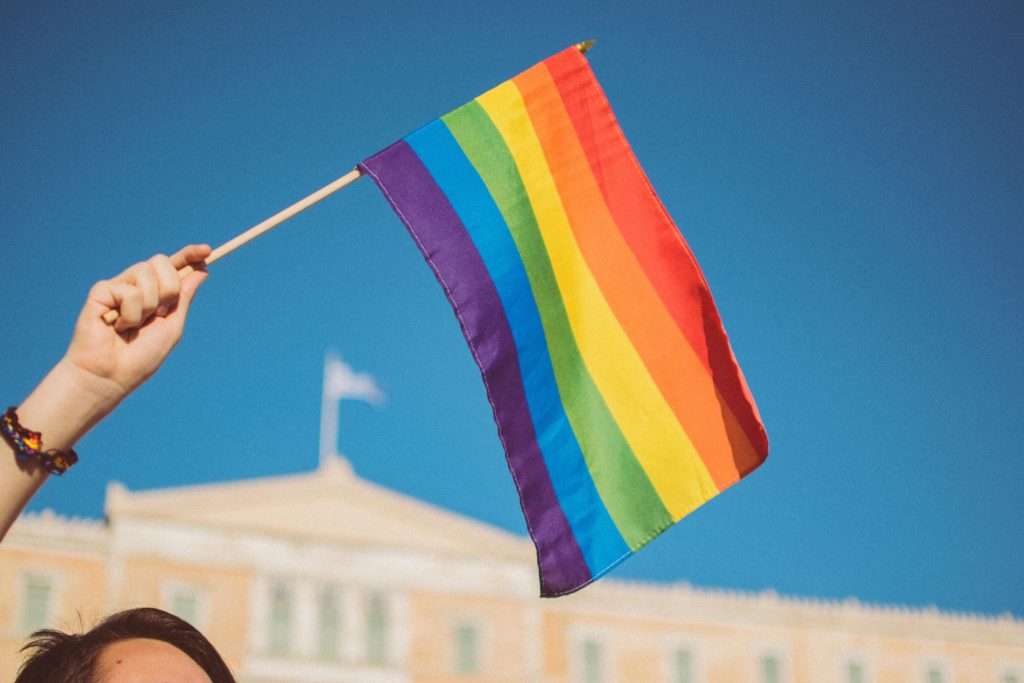
Dictionary.com had a surprising take on 2021’s word of the year, “allyship.”
![allyship [ al-ahy-ship ] noun the status or role of a person who advocates and actively works for the inclusion of a marginalized or politicized group in all areas of society, not as a member of that group but in solidarity with its struggle and point of view and under its leadership: Genuine allyship does not come with special recognition—we do not get awards for confronting issues people have to live with every day. the relationship or status of persons, groups, or nations associating and cooperating with one another for a common cause or purpose: In 1943, fearing that earlier racist immigration laws would hinder allyship with China in the war against Japan, the U.S. passed legislation allowing 105 Chinese immigrants per year.](https://interactcom.com/wp-content/uploads/2021/12/allyship-1024x590.png)
This is the first time Dictionary.com has chosen a brand-new word as the Word of the Year. According to the dictionary, while the word debuted in the mid-1800s, using allyship in a social justice context dates back to the 1940s. Meanwhile, the term has been used for non-LGBTQ+ supporters of that community since the 1970s. Its meaning today, of when a person who is not of a marginalized group works for its inclusion, spread in the 1990s.
“In 2021, allyship was increasingly discussed in relation to historically marginalized groups, especially Black and LGBTQ+ communities,” writes Dictionary.com. “Allyship is giving name to ever more nuanced ideas of social justice and is increasingly being extended to contexts of support outside of racial, gender, and sexual identity, such as disability and economic status.”
A List of New and Buzzworthy Words from 2021

Not every neologism and most-looked-up word made it to number one. However, the following terms still made headlines and very much describe an era!
BIPOC
New to Merriam-Webster, this abbreviation for “Black, Indigenous, (and) People of Color” made the news with the Black Lives Matter movement.
Makerspace
Another addition to Merriam-Webster, this term is a well-loved vehicle for innovation at many community colleges. According to the dictionary, a makerspace is “a communal public workshop in which makers can work on small personal projects.” “Makerspace” goes hand-in-hand with another new word to the dictionary, “coworking,” where multiple entrepreneurs and start-ups share a space.
Languishing
A recent New York Times article points out how this mental health term, coined by sociologist Corey Keyes long before the pandemic, sums up the general mood of the year.
“It wasn’t burnout — we still had energy. It wasn’t depression — we didn’t feel hopeless. We just felt somewhat joyless and aimless. It turns out there’s a name for that: languishing.
“Languishing is a sense of stagnation and emptiness. It feels as if you’re muddling through your days, looking at your life through a foggy windshield. And it might be the dominant emotion of 2021.”
The New York Times, “There’s a name for the Blah you’re feeling: It’s Called Languishing”
Perseverance

On a lighter note, Merriam-Webster says lookups for this word skyrocketed last year. Why? Last February, NASA’s Mars rover, named “Perseverance,” completed a journey of nearly 300 million miles over seven months. The name was chosen by Alexander Mather, a seventh-grader who won NASA’s “Name the Rover” contest.

Cicada
And talk about perseverance: Lookups for this word also took wing in the spring and summer when the Brood X cicadas emerged after living underground for 17 years. May saw a boost of 1,442% of increased views at Merriam-Webster. There’s something hopeful about those weird-looking bugs coming back to the surface!

Meta
When Facebook changed its name to “Meta,” the good people of the internet flocked to define the word. Lookups metamorphosed by 10,860% in October after the rebrand.
According to the dictionary, “meta” is defined as “showing or suggesting an explicit awareness of itself or oneself as a member of its category; cleverly self-referential,” and as “concerning or providing information about members of its own category.”
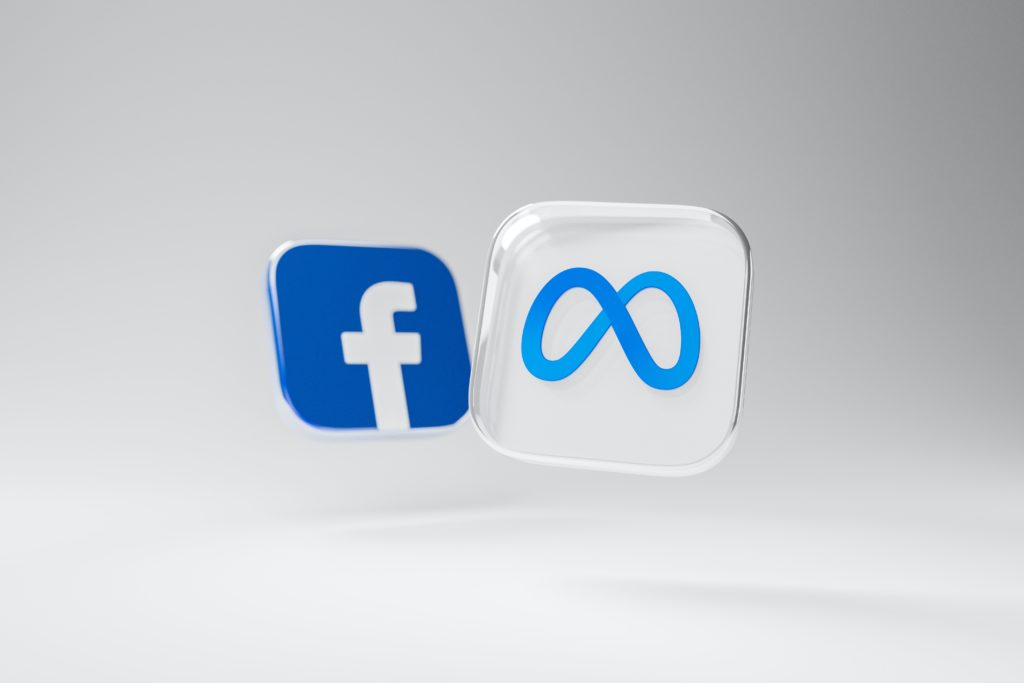
Now Meta hopes to create the “Metaverse,” a virtual world where people can work and play.
Yet, the word “Metaverse” was coined by sci-fi author Neal Stephenson thirty years ago in the novel Snow Crash. Humorously, it isn’t always a good thing in his novels. The word combines “meta” and “universe” to describe a virtual world where the main character’s avatar socializes, shops, and fights real-world enemies.
According to Stephenson…
“Almost since the beginning of the genre, science fiction writers have occasionally been given credit for inspiring real-life inventions, so this is not new, and it’s not unique. I was aware of that fact thirty years ago when I wrote Snow Crash, but I didn’t necessarily expect it to happen.
“Good science fiction tries to depict futures that are plausible enough to seem convincing to the readers — many of whom are technically savvy and tough critics.
“So, when depicting a future technology in a work of science fiction, you have to make it plausible. And if it’s plausible enough, it can be implemented in the real world.”
Axios, “Metaverse” creator reacts to Facebook name change
The New Word of 2022…
While there’s no Nostradamus for the 2022 dictionary, we can learn a lot about how far we’ve come by looking back. And with a little more perseverance (and perhaps the third dose of the vax), we’re hoping the future looks a little brighter… At least, linguistically.
Wishing you and yours all the best words for 2022.

Do you have a favorite word for 2021? What about linguistic hopes for 2022? Let us know on our Facebook or LinkedIn feeds!
About the Author: Blog written by Rachel Rosen-Carroll, Interact Copywriter. For fun, Rachel reads style guides and the dictionary, especially The American Heritage Dictionary… We wouldn’t make this up. When Rachel’s not writing feature stories about inspiring community college alums, the author works on novels, micro fiction, and poetry, and has been published by various lit journals. Reach out with questions or blog ideas at reachout@interactcom.com.
Want to keep reading? Check out these related blogs:
- Academic Jargon: Why It’s Evil and How to Crush It with 7 Simple Tips: Keep your language sharp and accessible with these jargon-busting tips.
- Quick Tips! Mental Health: One in every 10 of your younger students is dealing with some kind of depression. Find out how you can help.
- Let’s Talk About They/Them Pronouns: As marketers, it is our responsibility to address people respectfully and nothing is more important than simply using the correct pronouns.
- 3 Ways to Support LGBTQ+ Students on Your College Campus: Whether it’s providing resources or creating safe spaces, here’s our tips for creating a more inviting and safe campus for your LGBTQ+ students.

